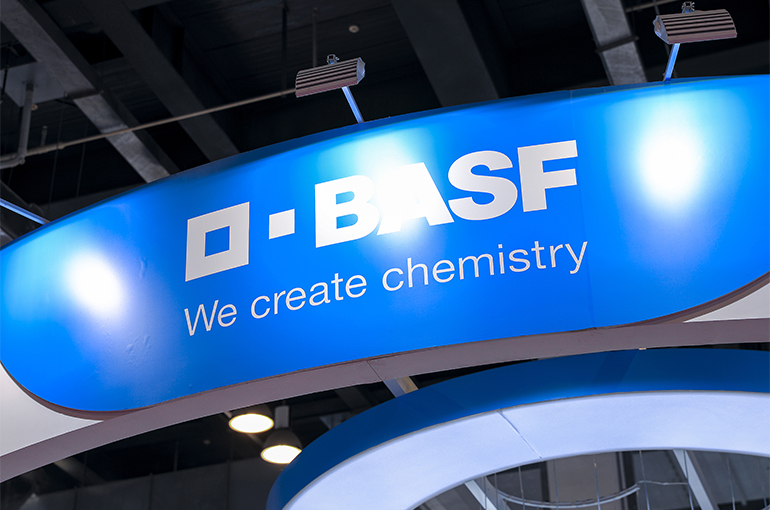
(Yicai) April 24 -- BASF has strong confidence in the Chinese market in the long term, despite some challenges that the country is facing in the short run, the president and chairman of the German chemical giant’s China arm told Yicai at a plastics exhibition yesterday.
BASF’s confidence in China is unwavering and it maintains a forward-looking investment strategy, Jeffrey Lou said at the 36th International Exhibition on Plastics and Rubber Industries, also known as ChinaPlas.
BASF has not slowed its investment pace in the Chinese market, nor will it suspend any projects, despite the short-term overcapacity problems, Lou said. The Ludwigshafen-based company will continue to expand capacity, focus on sustainable and low-carbon development as well as innovation in the country.
China’s exports will slow down in the short term, due to challenges in overseas markets and overcapacity issues, Lou said. This will mean that chemical firms will have less bargaining power and profits will shrink.
But the government’s systematic adjustment of the industry’s structure, including the gradual elimination of outdated and energy-intensive production capacity, means the market will reach a new equilibrium soon, he added.
Revenue in China’s chemical materials and products manufacturing industry dipped 3.5 percent last year from the year before to CNY8.8 trillion (USD1.2 trillion), according to data from the National Bureau of Statistics. And the profit margin narrowed 2.4 percentage points to 5.3 percent.
Key Position
The chemical industry occupies a pivotal position in China and is growing rapidly, Lou said. About three-quarters of the global chemical industry’s growth in the next 10 years will originate from China. In addition, China’s transformation to sustainable and high-quality development, especially in the high-end manufacturing industry, brings opportunities as well as challenges.
China started to move away from low-cost mass-produced products some time ago, said Andy Postlethwaite, senior vice president of BASF’s performance materials department in the Asia Pacific region.
For example, China leads in energy storage solutions, especially in wind power installations and battery manufacturing. With this shift, comes greater consumer demand for higher quality, more advanced technologies and seamlessly integrated products, which in turn presents BASF with more opportunities, he said.
BASF logged profit of EUR225 million (USD240.5 million) last year, a big improvement on the losses of EUR627 million in 2022, according to its latest annual report. But revenue slumped 21.1 percent to EUR68.9 billion (USD73.6 billion) amid an uncertain market environment. Sales in the Asia Pacific region, which comprises China, plunged 25.4 percent to EUR17.5 billion (by location of customers). Sales to customers in Greater China in 2023 were approximately EUR9.4 billion.
Auto Innovations
A solid-state electric car battery pack developed by BASF together with the Yangtze River Delta Physics Research Center and battery maker Welion New Energy Technology and which comprises more than 20 of BASF’s innovative materials was on display at ChinaPlas.
BASF also showcased mobility drive systems featuring high mechanical performance, HV electrical insulation, NVH isolation, fast rotation, and system cooling at its booth.
“The automotive sector is BASF's largest customer base, contributing around a quarter of its annual sales,” said Lou. “If all automotive parts suppliers are considered together including Bosch and Continental, BASF ranks 11th globally.”
“Over the years, the Chinese automotive industry has transitioned from being a follower to a leader in innovative driving solutions. BASF is well-positioned in many areas, including visions, local capacitors, ties and capacities, to support the development of Chinese original equipment manufacturers and new technologies,” said Postlethwaite.
“We work very closely with our partners, whether they are tier-one suppliers or OEMs, to develop materials and solutions that meet performance criteria such as driving range, charging performance, safety and longevity,” Lou said. This also helps them to meet the European Union’s standards on carmakers’ circularity of parts, he added.
Editor: Kim Taylor